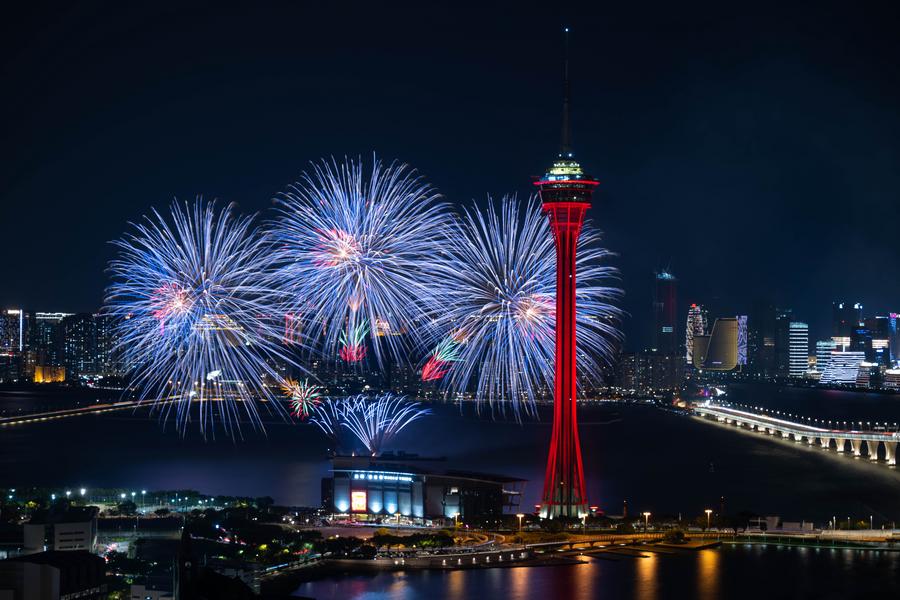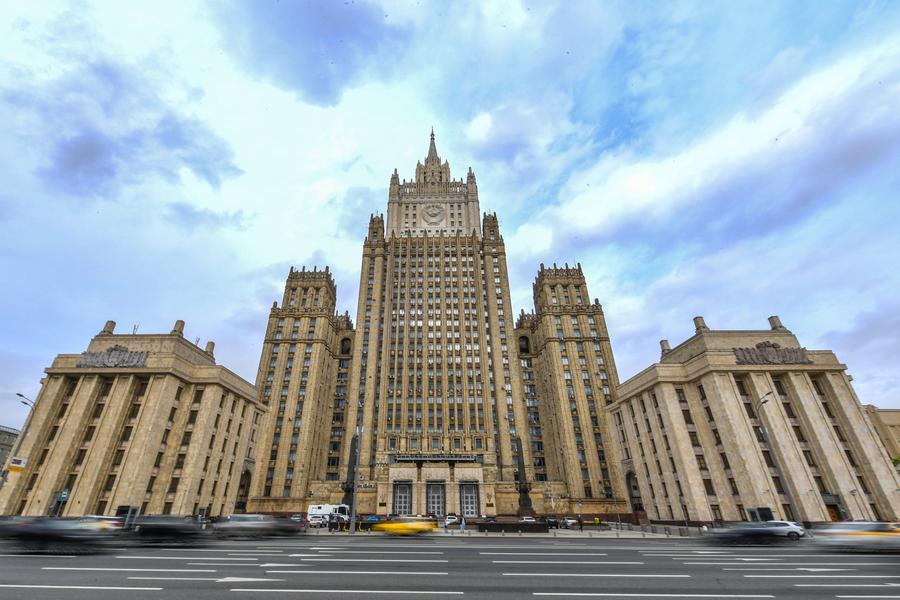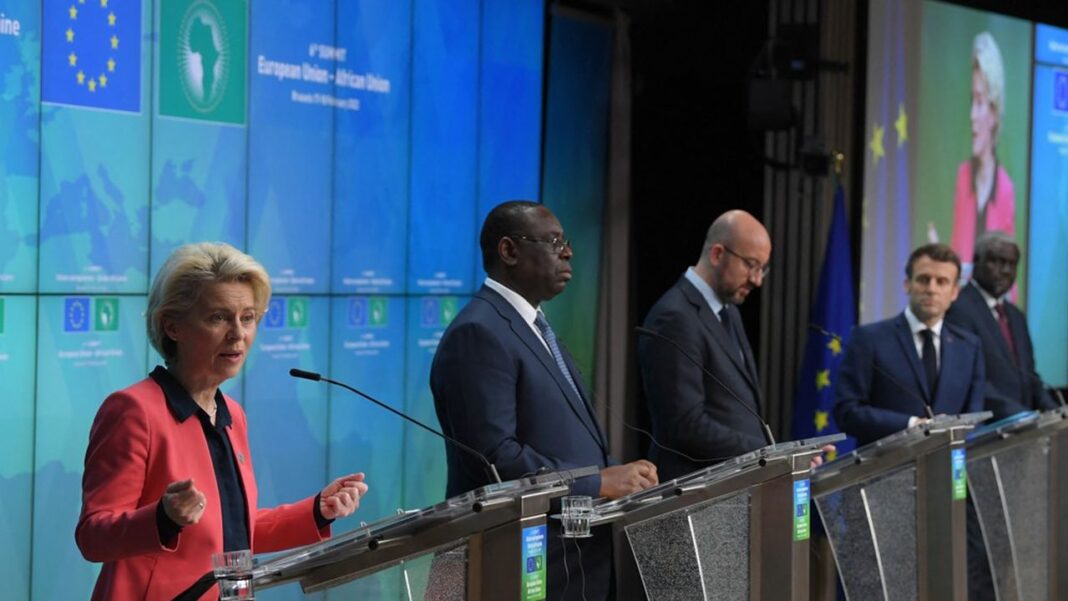* Despite early skepticism, Macao has disappointed naysayers, emerging as a model for the success of the « one country, two systems » policy.
* Macao’s success is attributed to its strong relationship with central authorities, efficient political system, rapid economic growth, significant improvements in living standards, and the harmonious coexistence of diverse ethnic groups.
* The « one country, two systems » policy is an ongoing experiment that continues to evolve.
by Xinhua writers Wang Aihua and Xu Lingui
For centuries, the quiet city of Macao, nestled next to Hong Kong, has rarely captured as much attention as it does today.
In less than a week, this wealthy and culturally vibrant Chinese territory will celebrate the 25th anniversary of its return to the motherland, which ended centuries of Portuguese occupation.
Since 1999, Macao has been governed under the « one country, two systems » policy — a unique arrangement that allows it to maintain its capitalist system and way of life within socialist China.
The concept was first proposed by late Chinese leader Deng Xiaoping in the 1980s to reunify the country, initially with Taiwan in mind. It was later implemented in China’s two special administrative regions (SARs) of Hong Kong and Macao following their handovers from colonial powers in the late 1990s.
Despite early skepticism, Macao has disappointed naysayers, emerging as a model of the policy’s success.
Once known as a « casino city » and a frequent backdrop for gangster films, it has transformed into a bustling hub, celebrated for its economic vitality, low crime rates, and exceptional public welfare. This year, Forbes magazine ranked Macao the second-richest place on Earth, trailing only Luxembourg.
Luo Weijian, a law professor at the University of Macao, attributed the city’s success to its strong relationship with central authorities, efficient political system, rapid economic growth, significant improvements in living standards, and the harmonious coexistence of diverse ethnic groups.
PATRIOTISM AND DEMOCRACY
According to Luo and other observers, Macao has developed a strong relationship with the central authorities and has benefited extensively from the vast resources and strategic opportunities provided under the « one country » framework.
« Over the past 25 years, the country has regarded Macao as a jewel in its palm, always serving as the strongest backing for Macao’s prosperity and stability, and consistently providing the greatest opportunities for its development, » said Macao SAR Chief Executive Ho Iat Seng.
Support can take the form of essential resources, such as a steady supply of freshwater, or something Macao, with a size merely over 20 square kilometers at the time of the return, needs most for development — space.
The central government approved Macao’s land reclamation plans and granted it administration over 85 square kilometers of surrounding waters. In 2021, an in-depth cooperation zone was established to deepen collaboration between Macao and Guangdong Province. The zone, on the island of Hengqin, spans more than three times the land area of Macao.
Ieong Tou Hong, a member of the Executive Council for the fifth-term government of the Macao SAR, said the drastic changes in Macao’s coastline and skyline are a vivid embodiment of the central government’s staunch support.
On the other hand, Macao has faithfully upheld the central government’s overall jurisdiction, safeguarding the very foundation of « one country. »
It completed legislation on safeguarding national security in as early as 2009. Putting in place a new principle required by central authorities that only patriots were allowed to run, it successfully held the election of the 7th Legislative Assembly in 2021. The chief executive election two months ago offered yet another example.
Kou Hoi In, president of the Legislative Assembly, recalled an almost unanimous agreement among legislators regarding the national security law. « While differing opinions may exist on certain livelihood issues, there is a consensus that the prosperity of the country comes first, » Kou said.
Observers said Macao has built an efficient political system over the years, where the chief executive plays the leading role while the administrative, legislative and judiciary powers operate as mutual checks and balances, yet in a cooperative way.
The legislature, for example, is by no means a « rubber stamp » as unfairly portrayed by some in the West. The majority of legislators win their seats through competitive elections. People who observed the elections said they are no less lively than those in Western countries — campaigns feature parading vehicles with loudspeakers, and polling stations witness long queues starting from early mornings.
During questioning sessions, legislators may confront the chief executive directly or submit their inquiries in writing, to which the government is obliged to respond. Face-to-face questioning sessions are streamed live by local media.
« The practice of ‘one country, two systems’ in Macao is based on the city’s own situation, which is different from Hong Kong, let alone the West, either in economic or in political terms, » said Luo, the university professor.
GROWTH OF ECONOMY AND PUBLIC APPROVAL
Chinese political philosophy has long highlighted the importance of public approval. Lin Guangzhi, a local cultural researcher, said « Macao did it. »
He said attaining a high level of public satisfaction has been a key factor in Macao’s smooth governance.
Lin noted that before 1999, the people of Macao loathed Portuguese colonial rule marked by bureaucracy, economic stagnation, and poor public safety.
Under the « one country, two systems » policy, Macao has secured strong support from its motherland, China, and the right to govern by the people of Macao themselves. Both are key to addressing Macao’s ills of the past.
But the success recipe under the policy is more than what the « one country » can offer. Macao has leveraged the advantages of the « two systems, » retaining the benefits of its capitalist system, including a more open economic model and thriving entertainment and leisure industries, particularly the gaming sector.
It is in striking comparison to the situation on the mainland where the Criminal Law punishes whoever gathers people to engage in gambling, runs a gambling house or makes gambling his profession for the purpose of profit.
Over the past quarter-century, the « one country, two systems » policy has driven Macao’s rapid economic growth. Compared with 1999, its per capita GDP more than quadrupled to around 70,000 U.S. dollars in 2023. That took place generally in parallel with the mainland’s economic take-off, but on a different path.
And the economic boom has trickled down to benefit the majority of the local population. The government has spent generously to improve accessibility and affordability of high-quality housing, healthcare and education. It is a much safer place as well, with violent crimes such as kidnapping, murder, and aggravated assault being either non-existent or extremely rare.
Zhang Jie, who moved to Macao from the mainland six years ago, said she feels confident enough to let her six-year-old daughter walk to school by herself. « Macao is extremely safe. »
With concerns about maintaining their capitalist lifestyles and interests dispelled, Macao is now a kaleidoscopic city, with both opulent luxury hotels and commercial complexes that claim the world’s top spots, and residential neighborhoods with older buildings giving locals the kind of common touch they desire.
Pansy Ho Chiu-king, a billionaire businesswoman from Macao, said in a recent interview that Macao people have a genuine sense of gaining in the city’s socio-economic and cultural boom.
Jose Chan Rodrigues, a Macao-born Portuguese, said Portuguese cultural elements such as the language and architecture have mostly been preserved in Macao.
« In 1999, I was still a child. My father told me not to worry. He said things will turn better. And they did, » Rodrigues told Xinhua.
Chief Executive Ho Iat Seng said Macao during his five-year term has made new progress in diversifying its economy to reduce heavy reliance on the gaming industry, aiming to build itself into a world tourism and leisure center. Sectors like traditional Chinese medicine, modern finance, sci-tech, exhibitions and conventions, and culture and sports are booming.
« Macao’s development over the past 25 years has demonstrated that the ‘one country, two systems’ policy is fully applicable, achievable, and popular, » Ho said.
Looking ahead, Sam Hou Fai, Macao’s incoming top official, said Macao will take an even more active role in the Guangdong-Hong Kong-Macao Greater Bay Area development, and advance the building of Hengqin.
He said Macao will also consolidate its position as a key platform for China to cooperate with Portuguese-speaking countries, home to some 250 million people across Europe, Latin America, Asia and Africa.
In July, China unveiled a new reform package, highlighting the need to harness the institutional strengths of the « one country, two systems » and facilitate the active roles of Hong Kong and Macao in the opening up of the whole country.
« This creates extensive space and opportunities for the future development of Macao, » Sam said.
DIVERSITY AND INCLUSIVENESS
Few places in the world are as multifaceted as Macao, where diverse cultural and ethnic groups live in concentrated communities on a land area of slightly over 30 square kilometers.
The historic center of Macao, a UNESCO world heritage site, offers a convincing testimony — it bears witness to one of the earliest and longest-lasting encounters between China and the West.
The narrow and elongated area is dotted with historic buildings, from the A-Ma Temple dedicated to the sea-goddess Mazu, to the Mandarin’s House — the former residence of a prominent Chinese historical figure, and the landmark Ruins of St. Paul’s, once among the largest Catholic churches in the Far East.
From Mazu and Jesus to the Buddha, their disciples may live next door to each other, and their sacred worshipping spaces may be visible within sight.
Wu Zhiliang, president of the Macao Federation of Cultural Circles, hailed the city as a « laboratory for human civilizations. »
« From capitalism to Confucianism and socialism, from Macao-born Portuguese to mainlanders and expats from Southeast Asian countries, Macao has always been at the forefront of cross-cultural exchanges, but rarely with clashes, » Wu said.
Macao people also demonstrate a more balanced attitude toward work and life than Hong Kong or the mainland’s top-tier cities, attracting an increasing number of visitors. « This perhaps is why the city has remained so inclusive and newcomers generally feel more welcomed than they had expected, » said Zhang Jie.
When the idea of « one country, two systems » was first proposed, few likely expected it to succeed so well in Macao, which was, at that time, the most inconspicuous compared with Hong Kong and Taiwan.
As Deng Xiaoping once famously stated, « It doesn’t matter if a cat is black or white, as long as it catches mice. » The « one country, two systems » policy is an ongoing experiment that continues to evolve. When implementing it, efforts should always suit local conditions. In this regard, Macao has undoubtedly emerged as a successful pioneer.
Zheng Yongnian, a renowned political scientist, said Macao’s current success under « one country, two systems » is not its ceiling, but rather « a new beginning and starting point. » ■
by Xinhua




